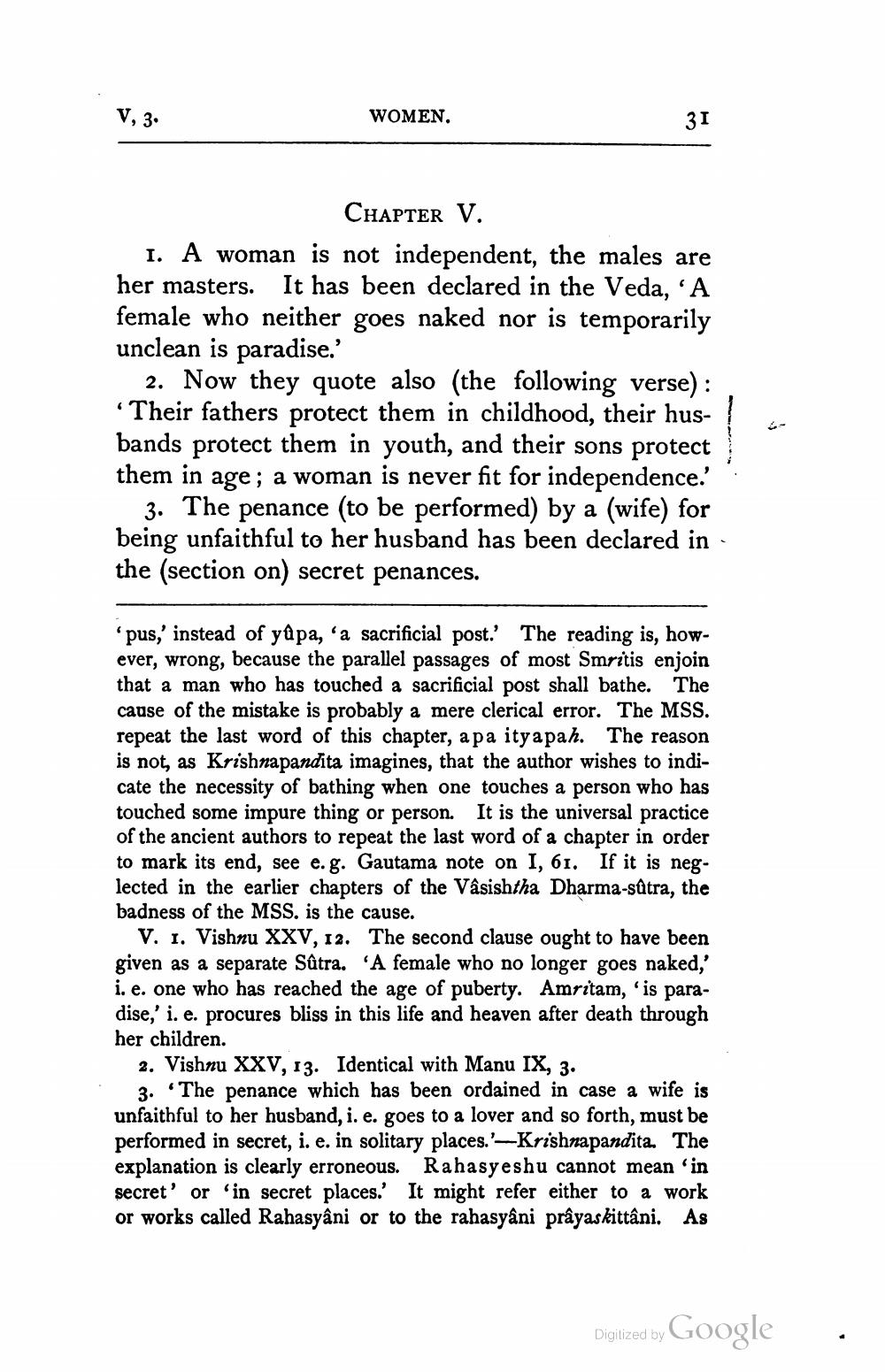________________
V, 3.
WOMEN.
31
CHAPTER V. 1. A woman is not independent, the males are her masters. It has been declared in the Veda, 'A female who neither goes naked nor is temporarily unclean is paradise.'
2. Now they quote also (the following verse): * Their fathers protect them in childhood, their husbands protect them in youth, and their sons protect them in age; a woman is never fit for independence.'
3. The penance (to be performed) by a (wife) for being unfaithful to her husband has been declared in the (section on) secret penances.
cause.
'pus,' instead of yậpa, 'a sacrificial post.' The reading is, however, wrong, because the parallel passages of most Smritis enjoin that a man who has touched a sacrificial post shall bathe. The cause of the mistake is probably a mere clerical error. The MSS. repeat the last word of this chapter, apa ity apah. The reason is not, as Krishnapandita imagines, that the author wishes to indicate the necessity of bathing when one touches a person who has touched some impure thing or person. It is the universal practice of the ancient authors to repeat the last word of a chapter in order to mark its end, see e.g. Gautama note on I, 61. If it is neglected in the earlier chapters of the Vâsishtha Dharma-sâtra, the badness of the MSS. is the cause.
V. 1. Vishnu XXV, 12. The second clause ought to have been given as a separate Sûtra. A female who no longer goes naked,' i. e. one who has reached the age of puberty. Amritam, 'is paradise,' i. e. procures bliss in this life and heaven after death through her children.
2. Vishnu XXV, 13. Identical with Manu IX, 3.
3. The penance which has been ordained in case a wife is unfaithful to her husband, i. e. goes to a lover and so forth, must be performed in secret, i. e. in solitary places.'-Krishnapandita. The explanation is clearly erroneous. Rahasyeshu cannot mean 'in secret' or 'in secret places. It might refer either to a work or works called Rahasyâni or to the rahasyâni prâyas kittâni. As
Digitized by
Digitized by Google
.




